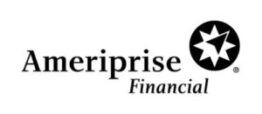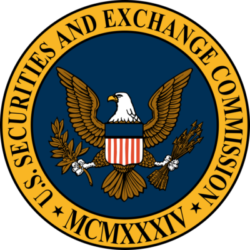
My stockbroker stole my money.
Ameriprise Financial Services Inc. will pay $4.5 million to the United States Securities & Exchange Commission to settle charges that it failed to safeguard retail investor assets from theft by its representatives.
Ameriprise Financial Services provides brokerage services to customers and advisory clients through a national network of approximately 9,700 stockbrokers or registered representatives.
Approximately 7,700 of those advisors are “independent franchisees” or employees or contractors of franchisees who operate within the group, Ameriprise Franchise Group (“AFG”). A significant number of AFG representatives are located in offices primarily made up of one to three representatives. The remaining 2,000 Ameriprise advisors are employees of the firm (known as employee advisors) and operate within the group, Ameriprise Advisors Group (“AAG”).
Franchise and employee advisors were subject to the same supervisory and compliance policies and procedures, including those that relate to the prevention and detection of fraud against clients of the firm.
According to SEC’s Order, five Ameriprise representatives committed numerous fraudulent acts, including forging client documents, and stole more than $1 million in retail client funds over a four-year period. The SEC found that Ameriprise, a registered investment adviser and broker-dealer, failed to adopt and implement policies and procedures reasonably designed to safeguard investor assets against misappropriation by its representatives.
According to the SEC’s Order, on multiple occasions during the relevant period, Ameriprise did not detect the fraudulent transfer of funds from client accounts to destinations that were controlled by its representatives. Ameriprise also did “not identify instances where a representative sought to gain control of a client’s account by improperly changing the address associated with the account to one that the representative controlled.”
“Ameriprise failed to adopt and implement policies, procedures, and controls that were reasonably designed to prevent and detect the misappropriation of client assets by the firm’s representatives.”
Two of the registered representatives found to have misappropriated customer funds are Barbara J. Stark and Susan Walker. Barbara J. Stark was a representative for 24 years was associated with Ameriprise from October 2008 to March 2013, when she was terminated.
FINRA Public Disclosure reflects more than six customer initiated investment related complaints, involving Stark and Walker. However, long before the SEC’s Order, Ameriprise appears to have denied these claims under the pretense that it did nothing wrong, and generally, as one would expect, not authorize their brokers to steal.
Another registered representatives, Jennifer Guelinas. Guelinas pled guilty to wire fraud in connection with the misappropriation of funds and sentenced to four years of probation; the probation was later revoked, and she was sentenced to ten months in prison. United States v. Guelinas, No. 2:12-CR-00075-JTM-JEM (N.D. Ind. filed Apr. 27, 2012).
From 2008 and continuing to 2013, Stark and Walker engaged in approximately 600 fraudulent transactions and misappropriated $1 million in client funds. Stark and Walker forged client signatures on dozens of Ameriprise forms, including those to change the address of a client, to disburse funds via check, and to transfer funds by wire.
Ameriprise suppoedly also had a process to send letter confirmations to clients of transactions. However, according to the SEC, “the process, however, was ineffective because Ameriprise sent many of the transaction confirmations to Walker’s home address (as opposed to the client address), an address known to Ameriprise.”
Similarly, another Ameriprise Financial registered representative, Jeffrey Scott Davis, operating from an Ameriprise franchise advisor from an office in Virginia, engaged in multiple fraudulent transactions and misappropriated $200,000 in funds from client accounts.
In Davis’ case, he fraudulently entered a wire transfer to a recipient bank account in the name of “DGP Group LLC”.Ameriprise knew that Davis had an outside business activity known as “DGP Group LLC,” because Davis had previously disclosed it to Ameriprise. Even though it should have been apparent that Davis was attempting to wire money from a client account to an external party under his control, Ameriprise approved the transfer anyway.
FINRA Public Disclosure reveals that Davis was the subject of at least ten customer initiated claims in arbitration against Amerirprise for the theft of customer funds including one claim by the executor for a deceased client’s estate where Davis was alleged to have stolen $2,500,000.00. This claim appears to have been settled for $1,750,000.00. FINRA Arbitration No. 14-03531.
Another registered representative, Justin Weseloh was employed by an Ameriprise franchise advisor in an office located in Ohio. Weseloh during the period of his association with Ameriprise, engaged in multiple fraudulent transactions and misappropriated $676,000 in funds from client accounts, of which approximately $373,000 was misappropriated from Ameriprise accounts.
Weseloh stole client funds through unauthorized wire transfers. In particular, he submitted wire request forms to transfer funds from client accounts to an external account for an OBA that was controlled by him and the representative that employed him. The OBA and its bank account were known by Ameriprise to be associated with Weseloh.
However, as noted previously by the SEC Order, “Ameriprise lacked a reasonable system to detect wire disbursements from a client account to an account known by Ameriprise to be associated with or controlled by the representative. Accordingly, Ameriprise failed to detect the unauthorized wire transfers by Weseloh.”
Such conduct is not new, and brokerage firms that discover their brokers are stealing money or obtaining unauthorized loans from customers often seek to conceal these acts from regulators and customers for fear that they may have to pay the customers back, or that they are legally responsible for the conduct of the brokers.
While brokers who steal money are often judgment proof or on their way to jail, the brokerage firms who employ them are liable for the acts of their registered representatives, even though they did not “authorize” them to outright steal from their customers. Their liability arises from their unequivocal duty “to establish, maintain and enforce an adequate supervisory system to detect and prevent misconduct.”
Accordingly, customer whom have had their funds stolen or misappropriated by their stockbrokers, or even by third parties, may be able to recover their funds by bringing an action against their brokerage firm. If you have been the victim of stockbroker theft or misappropriation, you should consult with a lawyer and seek to recover what was stolen.
The information contained herein has been obtained from reliable sources however may not be accurate and is not guaranteed by us. Readers are encouraged to undertake their own independent investigation and evaluation of the relevant facts. All claims and allegations are subject to adjudication, decisions may be subject to appeal, and no inference is intended, nor should any inference be made from any information contained herein from any source.
This posting and the information on our website is for general information purposes only. This content should be not considered legal advice, and any responses, comments, e-mails, other communications do not form any attorney client relationship. Attorney Advertisement. See Important Disclaimer
Guiliano Law Group
Our practice is limited to the representation of investors. Over the last three decades, we have recovered tens of millions of dollars for more than 1,000 injured investors from all over the United States and from all over the World. We accept representation on a contingent fee basis, meaning there is no cost to you unless we make a recovery for you. There is never any charge for a confidential consultation or an evaluation of your claim. For more information, contact us at (877) SEC-ATTY.
For more information concerning common claims against stockbrokers and investment professionals, please visit us at securitiesarbitrations.com
To learn more about FINRA Securities Arbitration, and the legal process, please visit us at securitiesarbitrations.com
To learn more about FINRA Securities Arbitration, and the legal process, please visit us at securitiesarbitrations.com








